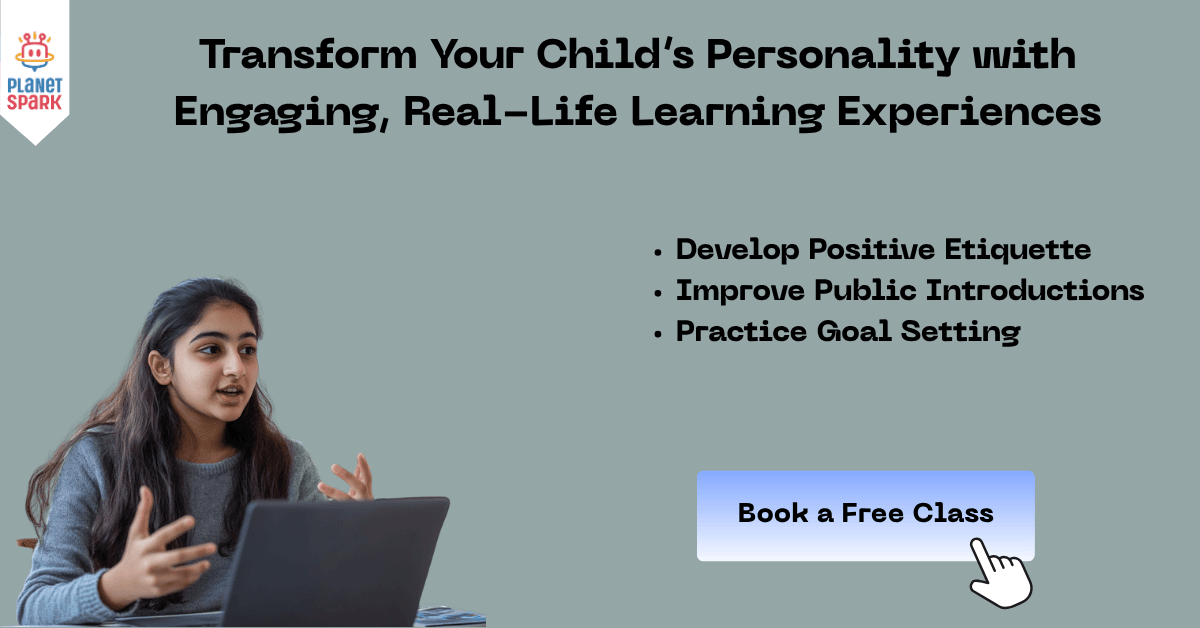How to Raise Smart and Successful Kids: A Blended Teaching and Learning Guide
Last Updated At: 13 Nov 2025
6 min read

In today’s digital world, blended teaching and learning has become a powerful way to support children’s growth. It combines structured, teacher-led instruction with flexible, experiential learning at home, helping parents play an active role in their child’s intellectual and emotional development.
By focusing on both the academic and emotional sides of growth, you can help your child build the curiosity, confidence, and character that define lifelong success.
The Foundation of Raising Successful Kids With Blended Teaching and Learning
Every child is born with limitless potential, but how they grow depends on the balance of guidance, experiences, and freedom they receive. The key lies in stimulating their mind, nurturing their emotions, and modeling good habits.
Blended teaching and learning bridges these aspects beautifully, combining real-world lessons with structured education. When parents and teachers work together, children gain a deeper understanding of how to apply what they learn in practical, meaningful ways.
The Five Core Pillars of Child Development
Personal and Social Growth
Social and personal awareness are the first steps toward independence. Teaching kids to care for themselves, share, and express gratitude builds empathy and confidence. Encourage them to participate in group activities where they learn cooperation and respect.
Through blended teaching and learning, these values are reinforced both at home and in class, creating consistent experiences that strengthen communication, empathy, and self-discipline.
Physical Development
A strong mind requires a strong body. Physical play enhances coordination, balance, and focus; all crucial for learning. Activities like yoga, cycling, or dance can help children improve attention and emotional control.
PlanetSpark’s blended teaching and learning approach integrates movement-based games with mental challenges, ensuring children stay active while learning core skills like patience, timing, and coordination.
Emotional Development
Teaching emotional intelligence is central to raising smart and successful kids. When children learn to identify and manage their feelings, they handle challenges better and develop resilience.
Parents can nurture emotional growth through small habits; talking about daily feelings, modeling calmness, or reading stories about courage and kindness. When combined with blended teaching and learning, emotional development becomes consistent; practiced at home, refined in class, and reinforced through peer interaction. early childhood development areas
Language and Communication Skills
The ability to communicate effectively defines success more than any grade. Encourage your child to read aloud, narrate stories, and participate in small conversations daily.
At PlanetSpark, blended teaching and learning ensure that kids don’t just memorize grammar; they practice real-life communication through interactive online sessions, storytelling, and feedback-based improvement.
Cognitive Development
Curiosity drives intelligence. When children are given the freedom to explore, experiment, and question, they develop critical thinking and creativity.
Simple games like puzzles, riddles, and observation activities sharpen problem-solving skills. In blended teaching and learning environments, these activities are reinforced digitally and practically, helping kids connect theory with real-world understanding.
Start your child’s journey toward confidence and curiosity.
Character and Academics: The Two Wings of Success
Academic excellence alone doesn’t make a child successful. True success is born from the balance between character skills, like empathy, perseverance, and responsibility, and academic discipline, like focus, organization, and self-motivation.
When blended teaching and learning is applied effectively, children get the best of both: structured lessons for intellectual growth and independent exploration for child personality development.
Key Character Skills to Nurture
Resilience: Let your child face challenges without immediate help. Overcoming failure builds lasting confidence.
Self-Control: Establish routines that teach time management and discipline.
Open-Mindedness: Expose them to diverse ideas and encourage curiosity.
Teamwork: Group activities help children practice patience, respect, and cooperation.
Academic Skills to Reinforce
Organization: Teach children to manage books, time, and study space.
Prioritization: Help them learn what matters most and complete it first.
Motivation: Relate learning to their passions; connect math to games, science to nature, and stories to imagination.
Each of these habits can be amplified through blended teaching and learning, as it allows learning to continue beyond the classroom, supported by parents, guided by educators, and driven by curiosity.
Understanding Every Child’s Learning Style
No two children learn the same way. Some absorb knowledge visually, others through movement or discussion. Recognizing these differences allows parents to personalize learning at home.
PlanetSpark’s blended teaching and learning model adapts perfectly to each style; combining live classes, digital practice, and real-world projects. Whether your child learns best by seeing, listening, or doing, blended learning ensures consistent growth across environments.
Habits That Build Smart and Successful Kids
Read and talk together every day.
Encourage unstructured play and outdoor activities.
Maintain healthy routines: sleep, meals, and rest.
Limit passive screen time and replace it with creative play.
Praise effort instead of perfection.
Let them make mistakes and learn independently.
Discuss feelings openly and model empathy.
These simple habits, when reinforced through blended teaching and learning, make learning a lifestyle, not a chore.
Help your child grow smarter every day.
How PlanetSpark Makes It Easier for Parents
PlanetSpark’s educational philosophy is built on the principles of blended teaching and learning. Our expert-led live sessions, AI-powered practice modules, and home-based tasks ensure that children learn continuously; in class, at home, and in daily life.
What Makes the Difference
Personalized Programs: Every learner progresses at their own pace.
Confidence Building: Real-time speaking, storytelling, and leadership tasks.
Activity-Based Learning: Combining structured lessons with creative exploration.
Progress Tracking: Parents receive ongoing insights into communication and confidence growth.
Through this blended model, children learn not only how to study better but also how to think critically, speak confidently, and act empathetically; the essence of being both smart and successful.
Final Thoughts
Learning how to raise smart and successful kids is not about chasing perfection; it’s about creating balance. With patience, consistency, and the right environment, every child can thrive.
When powered by blended teaching and learning, that balance becomes easier to achieve. It transforms education into a partnership between teachers, parents, and children, where every activity builds clarity, curiosity, and confidence.
Don’t wait to unlock your child’s potential.
Join Planetspark’s live blended teaching and learning programs today and help your child grow into a confident, compassionate, and future-ready individual.
Frequently Asked Questions
Blended teaching and learning combine live, instructor-led lessons with at-home practice and digital activities. It helps children learn academic concepts effectively while developing creativity, emotional balance, and confidence through real-world application.
By integrating both guided and self-paced learning, blended teaching and learning strengthens comprehension, problem-solving, and retention. It encourages children to think independently, apply lessons practically, and develop curiosity;key traits of intelligent, confident learners.
Parents are children’s first teachers. By encouraging open conversations, supporting school learning at home, and maintaining emotional consistency, they create the foundation for academic success and character development;especially in blended learning environments.
Yes. It provides consistent opportunities for children to speak, listen, and express themselves in interactive sessions. PlanetSpark’s live blended programs focus heavily on communication, storytelling, and public speaking;essential skills for lifelong confidence.
Encourage reading, curiosity, and daily reflection. Promote physical activity, gratitude, and limited screen time. Most importantly, blend structured study with real-life experiences;a core principle of blended teaching and learning.
PlanetSpark combines live classes, AI-powered practice, and home-based activities. This blended approach builds communication, confidence, and creativity;ensuring children grow into well-rounded, smart, and successful individuals.
Personalized Communication Report
Record a video to get a AI generated personalized communication report for your child
Select Learner's Class

Hi There, want to try these
tips for your child with
LIVE with our expert coach?
Let's check your child's
English fluency


